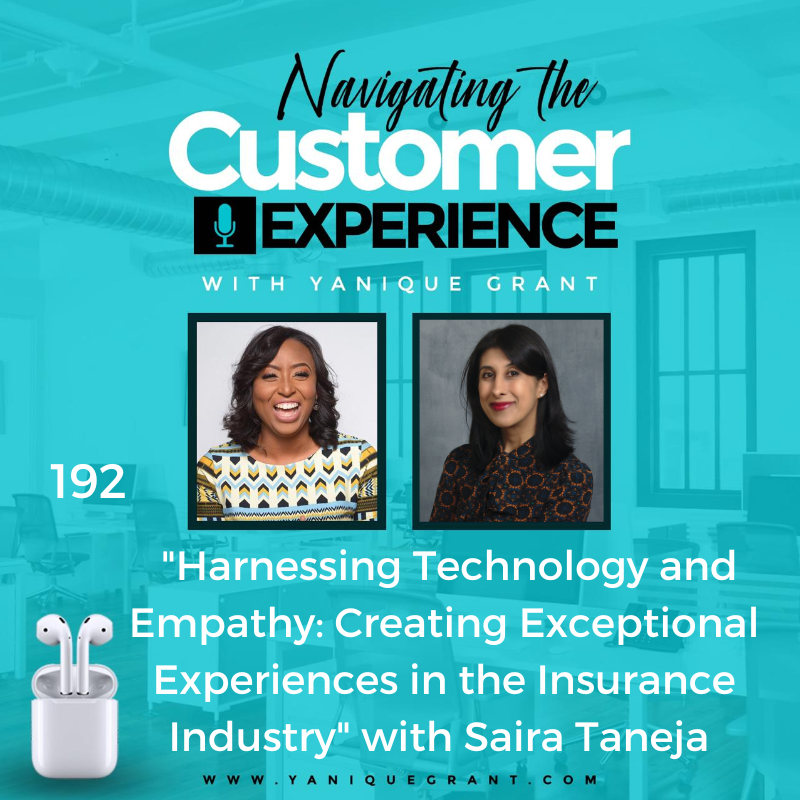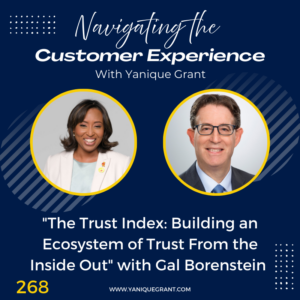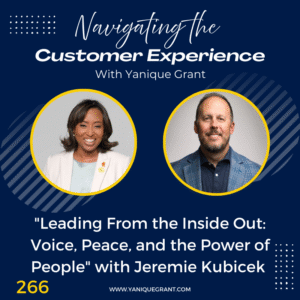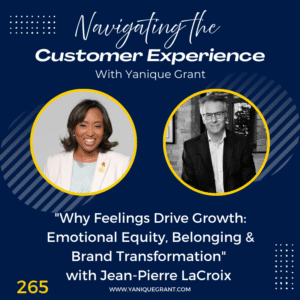Saira Taneja is Chief Experience Officer at Cover Whale, a leading commercial trucking insurance provider and fast-growing insurtech.
Taneja brings over a decade of experience in the health insurance sector across various functional areas where she held multiple leadership roles. Her passion for innovative market offerings led her to Cover Whale. Leveraging her expertise in scaling businesses, while also achieving customer-centricity has been instrumental in the company’s success. She currently oversees the Growth, Marketing and Customer Success organisations.
She holds a BA in International Business from Bentley University, and an MBA from Bentley’s McCallum Graduate School of Business.
Questions
• Now, we always like to give our guests an opportunity to share in their own words a little bit about their journey. So, could you take a few minutes just to share with our listeners, how it is that you got to where you are today?
• What is Cover Whale for those of our listeners that don’t know what your company does, could you share with us?
• One of the things that I think would be important for these kinds of experiences to have a more of an omni channel approach to your service experience or your service delivery, could you share with us maybe three things that your organisation is doing that creates that kind of experience? Or if you’re not doing it, maybe something you’re working towards doing.
• Could you also share maybe two to three pain points that your end users pretty much complain about with your service that you’re providing? What are some of your pain points that you’re solving on a day to day basis?
• Could you share with us what’s the one online resource, tool, website or app that you absolutely can’t live without in your business?
• Could you also share with us maybe one or two books that you have read that have had a great impact on you? It could be a book that you read a very long time ago, or even one that you’ve read recently.
• From a leadership perspective, what are some things that you do to ensure that your team is motivated, and your team is doing all the best they can do to deliver that experience, not just for your end users, but also internally to each other?
• Now, could you also share what’s one thing that’s going on in your life right now that you’re really excited about? Either something you’re working on to develop yourself or your people.
• Where can listeners find you online?
• Do you have a quote or saying that during times of adversity or challenge, you will tend to revert to this quote, if for any chance you got derailed, or you got distracted and you kind of use that quote to kind of just to get you back on track, get you back focused? Do you have one of those?
Highlights
Saira’s Journey
Saira shared that she likes to say that her career took a corporate path, albeit, not a linear one. And she tends to follow her passions for the next step. And so, without going into every twist and turn in her history, really it is that she started out, as mentioned, in sort of the International Business track, that’s where she thought she wanted to go, worked in Embassy for a summer in DC, decided that was not for her and wanted to go into business.
And so, really work from sales and marketing, product, strategy, CX all with a common thread of strategy and CX throughout her career and ended up in the health insurance sector. It happened by chance and a lot of them that are in the insurance space, say they got here by chance, that they stayed here because of the opportunity and really have developed a passion for it.
And so, Cover Whale came knocking about a year ago at this point with this amazing opportunity that was really an amalgamation of all of her corporate experiences into one beautifully challenging job and she said yes. And so, that’s what led her to her current post, as mentioned, overseeing the growth organization, marketing, customer success but really leading the charge on experience for Cover Whale.
About Cover Whale – What Does the Company Do?
Saira shared that Cover Whale is an Insurtech, so that’s shorthand for an Insurance Technology company, and MGA. And for those of the listeners that are not familiar with an MGA, that’s an Managing General Agent. So, an MGA is really a go between between the carrier partners. So, they have relationships with a number of different insurance carriers, and the Managing General Agent have functions that allow them to really underwrite. And so, they’ve been granted underwriting authority by the insurance companies with which they partner to bind, to underwrite, to price, to settle claims, and to point in retail agents.
So, all that to say is they are an entity between their carrier partners, and then retail agents, that’s really their primary distribution channel in the commercial trucking space. So, you think of truck drivers driving across America, they need insurance, that’s what they’re providing. And they’re doing it in a digital user-friendly way that hasn’t been seen before.
Me: So, your primary customer are your truck drivers, and when you said insurance, you’re talking about like health insurance? Are you also referring to life insurance?
Saira shared that that’s interesting, she came from the health insurance space. So, what they’re really offering is Commercial Auto Insurance. So, for their box trucks, auto haulers, semis, those are different types of vehicles, and for the cargo that they carry.
So, they are offering Commercial Auto Insurance for the end users or the policy holders, which are the truck drivers or owner operators. And they’re doing it through their retail agents. So, she’s really excited for today’s conversation because it’s a pretty complicated space and they really have multiple stakeholders. So, when they think about experience, not only is it about the end users or drivers, it’s about those that are distributing the insurance to them, which primarily for them is retail agents or wholesalers with whom they partner with.
Creating an Omni Channel Experience
Me: So, one of the things that I think would be important for these kinds of experience to have a more of an omni channel approach to your service experience or your service delivery, could you share with us maybe three things that your organization is doing that creates that kind of experience? Or if you’re not doing it, maybe something you’re working towards doing.
Saira stated that she loves that question, so, it’s really interesting that Yanique said the word omni channel. And she thinks that means different things to different companies. But really, where most companies start is, you have service, so you have a place where people who might have questions or an issue can go to and call you as a company, right? They (Cover Whale) and others have a call line to be able to reach out to them, so that’s one point in the experience.
And really, they also allow their partners to reach out to them via email, that’s another point. But really where the majority of their experience is delivered is through their proprietary platform that they’ve built in house.
And that’s where they go to bind coverage for policyholders. And so, what she’ll say is, what she just described really is a multi-channel experience, right? You have various points in the interaction with Cover Whale and other companies where you can reach out, but multi-channel are siloed.
And so, she thinks you’re asking about omni channel, which is how are you connecting all those points together, and that’s something that they are working on internally that she knows every company is really after, because some of the best experienced companies in the world have figured out, you reach out to them one way, they know when you’ve reached out to them a different way and they’re able to take the data that you’ve given them or information you’ve given them through those different channels and put it all in one place so that your experience is standardised across various channels.
So, that’s something that they’re working towards and getting better at every day. And really, it starts with centralization of data. And so, just with your questions of three different ways, she just described them. So, email, calling, as well as the platform as well as they have an app. And what she loves to say is that, in today’s day and age, there are so many different channels from which customers can reach out and it’s a matter of marrying all of them together into one omni channel experience.
Pain Points Cover Whale is Solving
Me: Could you also share maybe two to three pain points that your end users pretty much complain about with your service that you’re providing? What are some of your pain points that you’re solving on a day to day basis?
Saira stated that that’s a really great question. And she’ll be very honest with you, Cover Whale grew really, really quickly. The company was founded in 2020 and they’re sitting here almost midway through 2023, they did not realize they’d experienced this level of explosive growth.
And so, with that, obviously come service challenges. When customers used to reach out to them, they wouldn’t hear back in really a very quick fashion. And so, what they’ve done over the last year is really work on their timeliness. What they done is, they stood up a number of self-service tools. So, a knowledge base, a chatbot. They’ve stood up internal service level requirements for their team to achieve on the service side for getting to first contact resolution of an 85%, for an email response time of four hours.
And so, she would say to the question, it’s really about speed of service that they’ve worked on and done really well at and you know what, at the end of the day, it’s leveraging technology to be able to help and anybody can staff with hundreds of people to get to the hundreds of inquiries that are coming in, but it’s really about being smart and applying technology so that you can drive down inquiries and also make improvements. The questions that were coming in, it gave them real insight into the pain points that they should be solving, sort of at the top of the funnel, rather than staffing for on the other end.
App, Website or Tool that Saira Absolutely Can’t Live Without in Her Business
When asked about an online resource that she can’t live without in her business, Saira stated that she loves this one. She likes to stick to and there are so many but for her, it’s Miro. What she loves doing and if you ever visit their Cover Whale offices in New York and she welcomes you to do so. You’re going to find post its everywhere. When they’re in person, folks have known have visited the office when they’re post its all around the room and more of the team is leveraging them now.
But she thinks it’s really important to map the end to end journey for whatever it is that you’re trying to solve for. Because sometimes one part of the company may be doing something that another part of the company may not be aware of. So, sitting and mapping step by step from a user’s perspective is so important. And so, Miro is really the digital version of that. If you’ve ever used it, it’s essentially a whiteboard with sticky notes, digitally, they can be any size, shape, colour, and you essentially do the same thing. And so, she uses that fairly often in a virtual setting.
Books that Have Had the Biggest Impact on Saira
When asked about books that have had a great impact, Saira shared that one that she loves, if folks that are listening that have not read before, it’s really old, it’s probably from like the late 90s, but it had quite an impact on her life, it’s called The Four Agreements: A Practical Guide to Personal Freedom (A Toltec Wisdom Book). So, she loves that one. And not to steal the thunder of the book. But really, it’s four agreements that you can apply to your life, starting with being impeccable with your word. To always doing your best and a lot of really good wisdom in the middle. And just to give credit where credit is due, that’s by Don Miguel Ruiz, a Mexican author.
And the other one is by an Organizational Psychologist, Adam Grant, called Think Again: The Power of Knowing What You Don’t Know. And she found that one really enlightening and eye opening, because there are a lot of assumptions and biases and everybody’s thinking that they may not even know that they have. And it’s really about questioning everything that comes to mind and really encouraging others to question also, facts that we all may think are facts are likely have changed over time, the world is a dynamic place. And so, it’s about thinking and thinking again, so she would encourage listeners to read that one if they haven’t yet.
Ensuring the Team is Motivated to Deliver the Best Experience to the End Users and Internally
Me: Now your role, Saira at Cover Whale is Chief Experience Officer and that’s a very big role. I can imagine in terms of leadership, you have to have strong leadership, certain kinds of skills to ensure that you are leading a team that is not just doing things because you’ve told them to do it, but they are intrinsically motivated to do it. And so, from a leadership perspective, for those of our listeners, who are tapping into this episode, and they’d like to sharpen their leadership skills, especially with post COVID, lots of people are burnt out mentally, they might not necessarily like everything about what they do and sometimes that energy comes over in their drive and the work that they get done. What are some things that you do to ensure that your team is motivated, and your team is doing all the best they can do to deliver that experience, not just for your end users, but also internally to each other?
Saira stated that she loves that question. So, when you think about experience, it’s not just the experience that you’re delivering, it’s the experience of the people with whom you’re working with every single day. If the experience of the people you’re working with is not good, more likely than not, your customers are not happy either. And so, it starts with the culture, it starts in the organization and for her, her leadership style is really one of being a servant leader. It’s about listening to those that she leads in her organization and understanding what’s working well, what isn’t.
Saira shared that she is actually on a listening tour right now with their agent partners, she’s trying to meet with one every single day, it might take her years to get through all of them because there are thousands but she offers this as a suggestion to other leaders who are listening to this podcast because leadership has a tendency, we want measurement, NPS, customer effort, customer satisfaction, what is the data telling us, and you will get insights from surveys, absolutely and that should be happening too.
But just pausing and calling your customer, reaching out to them, having a meeting, sitting down with them, asking for feedback is so powerful. She has learnt so much in the last x months of sitting down with partners every single day that she doesn’t think she would have gotten the same colour from a PowerPoint presentation on sort of survey insights. And so, she just encourages listeners to reach out and have a conversation, you might learn something that your customers would not have offered in an online survey or other medium. So, just ask and listen, active listening is such an important part of what we can all do.
They’ve hired the best of the best, really, and so it’s about making sure they have everything that they need to do their best work. And what she can say to you is that in terms of their experience, they’ve purposely developed the culture internally at Cover Whale to be one that’s employee centric. And in being employee centric also means that they have the power to do right by their customers and their stakeholders. And so, what she asked the team to do is in every interaction, or anything that they’re standing up, whether it be at the product level, whether it be in communications, is this something that you would like to be on the receiving end of if you’re in the shoes of their customer?
She thinks that’s so important. They’re not just going to a company everyday working and going home and turning off, they’re actively building something and creating something that their customers are experiencing, that they experience, frankly, 1000s of times a day in their interactions with other companies. So, she thinks it’s really about bringing that message home and empowering their people to be able to do right by their end users.
What Saira is Really Excited About Now!
When asked what’s one thing that’s going on right now that she’s excited about, Saira stated that that’s a great question. She stated that it’s figuring out how to harness technology for service. And when she says service, she doesn’t just mean their service centre. When it comes to insurance, once somebody signs on the dotted line, everything that comes after over the next year is service, if they need to reach out, if they need to make a change, if something has happened unfortunately, that’s service and so how do they harness technology to be able to help with that service and ChatGPT is such an interesting point in their life, and in society to figure out how to mindfully apply technology so that we can free up humans to do more value-add work, and really drive the empathy that all people want.
At the end of the day, people are looking for a connection at a certain point, they may not want to talk to a person for a common question that they can get responded to via Chatbot or that they can find a knowledge base. But she thinks that’s one of the most interesting things that they’re really thinking through right now of how do you apply technology to be able to free up people to be able to do more value-add work? And she thinks this is not just a question that she has internally with Cover Whale, she thinks this is a question that leaders are asking throughout. And really everybody’s asking of what is this going to mean five years down the road?
Me: Agreed. It’s interesting you mentioned ChatGPT because I don’t believe that is going to replace people. And I totally agree with you that the question should be, how can we use the technology to answer more mundane, run of the mill kind of questions, and then the more complex tasks that require a high level of empathy, the emotions and the workings of a human being that chat or a bot or any form of artificial intelligence can’t deliver, the humans can be freed up to deal with those kinds of scenarios.
Saira stated yes, she totally agrees with that.
Me: So, in continuation of that whole point, do you see ChatGPT evolving, and exploding, or even something that’s being added on to that like in the next, I would say, 12 months? Because it’s definitely a buzz thing that’s happening, have you found ways in your organisation to make it work?
Saira stated that they have and it’s interesting. So, what she would say is, she thinks that her inclination right now, based on what she’s seen, is that she would not want to apply it just front and centre to their customers. She thinks from a service standpoint, it’s really unpredictable. In terms of what you might get back, but she thinks it’s really compelling to use as a tool, which is where she hopes we all end up going, if you think about a calculator being introduced to the world, and everybody’s saying, “Oh, no, nobody’s going to learn how to do math.” And it’s like, well, you learn to use it as a tool for analysis, for research.
And so, that’s really how they’re trying to leverage it, of are there certain things that they might be able to input into it? Can it crunch massive amounts of data to be able to give them insights that otherwise would have taken them weeks to do?
For instance, are they able to take certain inputs and filter it through, of course, nothing proprietary or sensitive, and then understand what’s working well from the proprietary technology they’ve stood up. What might be a production error that they’re seeing or others. So, she thinks that if organizations can figure out how to optimise their back-end operations by using ChatGPT as a tool, she thinks it would just make us more efficient. But in terms of it being customer facing right now, she doesn’t think we’re there.
Where Can We Find Saira Online
LinkedIn – Saira Taneja
Quote or Saying that During Times of Adversity Saira Uses
When asked about a quote or saying that she tends to revert to, Saira shared that she does. The one that she always tends to go back to is Alice Walker, she’s an American novelist. She has said, “The most common way people give up their power is by thinking they don’t have any.” And she loves that because we all have the power, each and every day to drive change. No matter what aspect of life it is and this is what she shares with her teams as well, is that you have the power really to change something. Don’t pass the buck, don’t think somebody else will do it for you. If you can do it, you have the power to do it, do it.
Me: Awesome. Thank you so much for sharing, Saira. And I think if anything our listeners should take away from this interview is focusing on ensuring that we really pay attention to all of our stakeholders, our employees, our customers, and ensure that we really listen to them as she mentioned, active listening, it’s something we take for granted, it’s something that we have to do every day in order to communicate. But are we really designating that time and effort to the people who really need to be heard so the real change can be made?
Please connect with us on Twitter @navigatingcx and also join our Private Facebook Community – Navigating the Customer Experience and listen to our FB Lives weekly with a new guest
Links
· Think Again: The Power of Knowing What You Don’t Know by Adam Grant
The ABC’s of a Fantastic Customer Experience
Grab the Freebie on Our Website – TOP 10 Online Business Resources for Small Business Owners
Do you want to pivot your online customer experience and build loyalty – get a copy of “The ABC’s of a Fantastic Customer Experience.”
The ABC’s of a Fantastic Customer Experience provides 26 easy to follow steps and techniques that helps your business to achieve success and build brand loyalty.
This Guide to Limitless, Happy and Loyal Customers will help you to strengthen your service delivery, enhance your knowledge and appreciation of the customer experience and provide tips and practical strategies that you can start implementing immediately!
This book will develop your customer service skills and sharpen your attention to detail when serving others.
Master your customer experience and develop those knock your socks off techniques that will lead to lifetime customers. Your customers will only want to work with your business and it will be your brand differentiator. It will lead to recruiters to seek you out by providing practical examples on how to deliver a winning customer service experience!
The ABC’s of a Fantastic Customer Experience Webinar – New Date
Register Here






